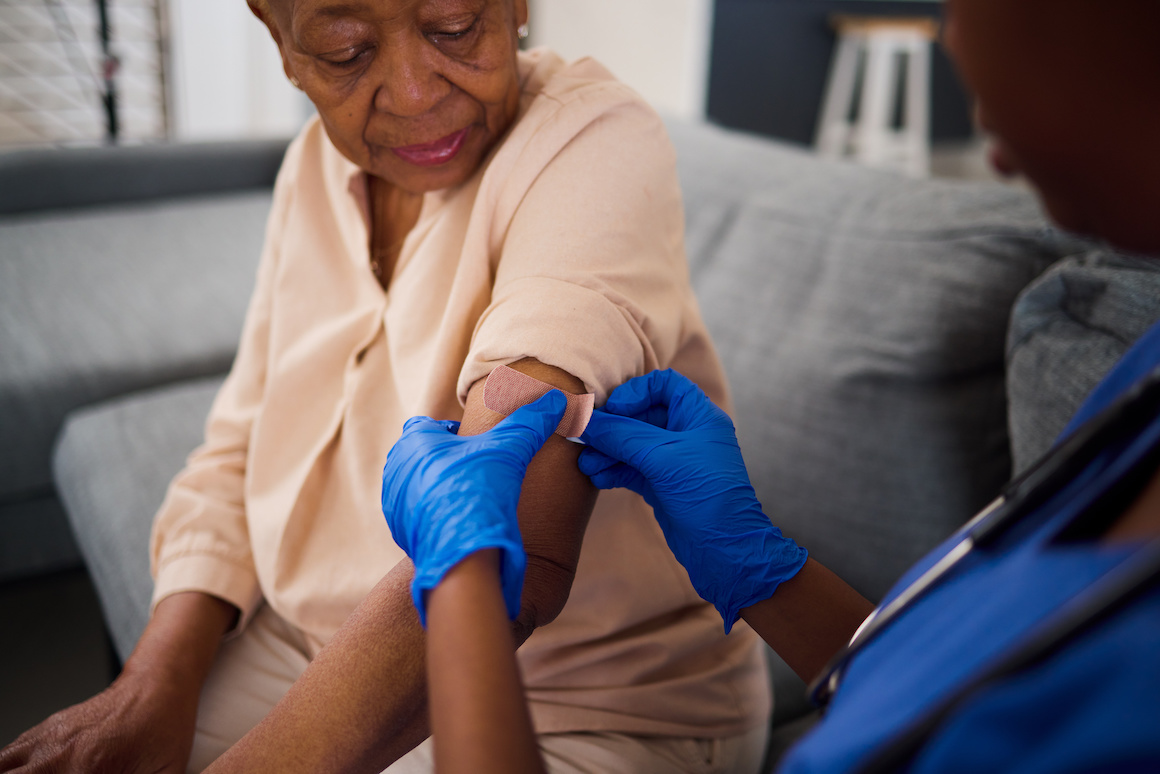
Fall brings with it the holiday season, brisk temperaturesand more respiratory illnesses.People are inside more, with other people more, and cold, dry air weakens resistance, according to Johns Hopkins.That makes fall Vaccine Season the time to get vaccines that will prevent (or minimize) the misery of common respiratory infections.We asked Laurie Archbald-Pannone, MD, MPH, associate professor of geriatrics at the University of Virginia, Charlottesville, what she tells her older patients about vaccines.We also checked in for vaccine advice from the Centers for Disease Control and Prevention, the Food and Drug Administration and the National Institutes of Health.Vaccines are one of the best things we can do to prevent ourselves from getting infected and really sick from infection, Archbald-Pannone says.
Yes, the list of vaccines is admittedly long and who needs what and when can get complicated.She simplified it.Vaccine RundownIn the fall, especially, I think its important to focus on respiratory type infections and vaccines, she says.That means:COVID vaccines: The FDA has now authorized 3 updated vaccines for COVID prevention for this yeartwo mRNA, from Pfizer and Moderna, for those 6 months and above, and one protein-based, Novavax, for those 12 years and older.Influenza vaccine: If you have access to the so-called high-dose flu shot, meant for older adults, get it, Archbald-Pannone says.
Researchers who compared standard-dose flu vaccine with a high-dose vaccine, an adjuvanted (with an immune system booster added) and recombinant flu vaccine (made without chicken eggs) found that the standard dose provided less protection than any of the other three.That said, Archbald-Pannone says, if you dont have access to the high-dose shot, any flu vaccine is better than none.RSV vaccines: All adults age 75 and above (and those 60 to 74 with higher risk for this virus due to heart disease or other issues) should get one of 3 RSV vaccines, the CDC recommends.Pneumonia vaccines: There are different vaccines to prevent pneumonia.The CDC lays it out here, with the best advice to talk to your doctor about the best one for you and when to get it, Archbald-Pannone says.Shingles vaccine: Caused by the same virus as chickenpox, which lays dormant and can reactivate, shingles affects the nerves and produces burning, shooting pain and fluid-filled blisters.
Two doses of Shingrex, 2-6 months apart, is the CDCs recommendation.Special VaccinesCheck the date of your last Tdap (tetanus/diphtheria/pertussis) immunization, especially if youll be visiting around infants, who are highly susceptible to pertussis (AKA whopping cough) and not yet able to be vaccinated, Archbald-Pannone says.Generally, the DPT shot needs updating every 10 years, but if youve gotten a rusty nail or similar injury recently, make sure its no more than 5 years since your last shot, she says.Other Vaccine FactsVaccinations are not one-and-doneI always say [youre] up to date for now once people are done with a spate of needed vaccines, Archbald-Pannone says.Were never done with vaccines, were just up to date for now, she says.
Recommendations can change, too, for when vaccines are needed and who needs them.Vaccines are good at prevention, but not perfectShe advises patient to remember that vaccines are goodbut not perfectat preventing infections.But what they are really good at is preventing bad outcomes from infections, such as hospitalization, or worse.Flu shots cant give you the fluWhat about those people who claim the flu shot gave them the flu? Nope, she says.The flu shot cant give you the flu.
It doesnt have active virus in it to cause the flu.It takes a couple of weeks [for the shot] to take effect.So if you get exposed to the flu before you get the vaccine or before it became effective, you can still get the flu.
But you cant blame the shot.Side EffectsAnd what about side effects? Most are minor, she says, and if you go to your vaccine appointment well hydrated, youre less likely to get them.Double up on vaccines?Doubling up on vaccines to get them done is common for children, and some researchers suggest adults could do the same, getting the flu and COVID shot at once, for instance.They say it wont risk safety and health and would help people fit in all the needed shots on time and in fewer visits.AffordabilityMost insurance plans cover vaccines; see more information here.Kathleen Dohenyis a Los Angeles-based independent journalist, specializing in health, behavior, fitness and lifestyle stories.Besides writing for Senior Planet, she reports for WebMD, Medscape, MedCentral and other sites.
She is a mom, mother-in-law and proud and happy Mimi who likes to hike, jog and shop.Photo of Kathy Doheny: Shaun NewtonThis article offered by Senior Planet and Older Adults Technology Services is for informational purposes only and is not intended to substitute for professional medical advice, diagnosis, or treatment.Always seek the advice of your physician or other qualified health provider with any questions you may have regarding any medical condition.If you think you may have a medical emergency call 911 immediately.
Publisher: Senior Planet ( Read More )

